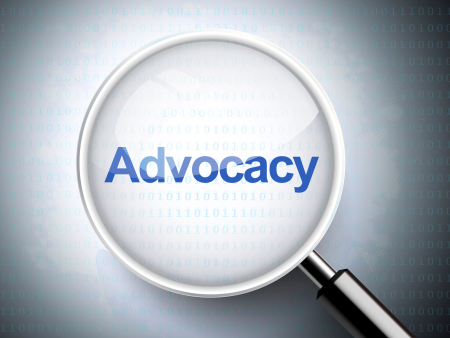
211 Brevard Onboarding
-
You must log in to register
- Free Access - Free!
A series of online courses for Community Resource Specialists as the prepare to serve their community
-
Contains 12 Component(s), Includes Credits
This course will help you understand how ethics play a part in the provision of I&R services in your organization and in your community. Along with exploring your own value system, this course discusses the nature and implications of stress, stress management and self-care, and setting healthy boundaries and expectations within I&R.
This course will help you understand how ethics play a part in the provision of I&R services in your organization and in your community. Along with exploring your own value system, this course discusses the nature and implications of stress, stress management and self-care, and setting healthy boundaries and expectations within I&R.
-
Contains 15 Component(s), Includes Credits
Despite increased awareness, there remains a stigma about mental health disorders and a lack of understanding of about mental health. This interactive course provides general, introductory information on the nature and types of mental health disorders, the services that are available to individuals and their families/caregivers, and how to best communicate to those clients with empathy and confidence. This course is for Community Resource Specialists and is relevant to those who are new to this role as well as experienced team members who need a refresher.
Despite increased awareness, there remains a stigma about mental health and a lack of understanding of what the term “mental disorder” really means in either a broad or a narrow sense.
This interactive course provides general introductory information on mental health disorders and the services available to affected individuals. It is primarily intended for staff at Information & Referral (I&R) organizations that need the ability to handle a wide range of clients and disorders, including those involving mental health concerns. However, as a basic course, it has relevance to anyone within the human services sector who is not a specialist in mental health and related issues.
This course is primarily for Community Resource Specialists.
When you have successfully completed this course, you will be able to:
- Describe the nature and types of major mental disorders (e.g., depressive disorders, bipolar and related disorders, schizophrenia spectrum and other psychotic disorders, anxiety disorders, etc.).
- Communicate more effectively with persons who have a mental disorder/disorders.
- Explain the basic structure of services available to persons with mental disorders.
Free Content:
- AIRS Webinar Series - Mental Health Awareness Month
- Video - What You're Feeling is Normal, How to Minimize Stress By Connecting To Yourself Better (scroll down a little)
- Video - Borrowed Breath, Helping Others Find a Calm in the Storm (scroll down a little)
- Video - Just a moment (scroll down a little)
-
Contains 12 Component(s), Includes Credits
This course is best for and individual in any role who is seeking to gain understanding of working with youth regardless of their level of experience. This course outlines the issues faced by young people and the realities of communicating across a generation gap.
This course is primarily for Information & Referral (I&R) Specialists who are responsible for answering I&R inquiries and need the ability to handle a diverse range of service delivery, including calls from and concerning young people, the challenges young people face, and the services designed to help them. It outlines the issues faced by young people and the realities of communicating across a generation gap. The course describes the services that are available for all young people in addition to addressing some of the particular challenges confronted by at-risk youth. This course is not suitable for specialized youth workers. Also, differences in legal frameworks may make this inappropriate for Canadian I&R Specialists.
-
Contains 12 Component(s), Includes Credits
This course is ideal for beginners and also serves as an excellent review for more experienced Community Resource Specialists who need to understand more about crisis intervention within an I&R environment. Topics discussed include defining the nature of crisis, the search for coping mechanisms, and the types of crisis generally encountered within I&R.
This course covers all aspects of crisis intervention within an I&R environment. Topics discussed include defining the nature of crisis, the search for coping mechanisms, and the types of crisis generally encountered within I&R. It includes a crisis intervention model and the elements of a suicide risk assessment. The material is primarily geared for front-line staff at I&R services. It is not appropriate for crisis specialists but may be a practical primer for other professionals within health and human services.
-
Contains 10 Component(s), Includes Credits
This course is ideal for any level in any role related to direct services who want to learn more about and identify the important considerations for setting up chat or mobile texting at their organization, including the components of chat and text software platforms.
The ways in which people access Information & Referral (I&R) and other human services are changing – and changing rapidly. Clients want services that are highly accessible, flexible, and individualized to their preferences. I&R organizations and their staff need to deliver quality service using online chat and mobile texting technologies. This course will help human service providers identify the important considerations for setting up chat or mobile texting at their organization, including the components of chat and text software platforms. It will also assist I&R services providers to understand the basics of professional communication in a text-based environment, including how to apply national Standards for I&R service delivery to chat and texting. Special attention will be given to how to handle crises in a text-based environment.
-
Contains 3 Component(s), Includes Credits
Empowerment and advocacy are fundamental principles of information and referral. Empowerment will help individuals both now and in figure situations. Advocacy means assisting people who may need assistance getting the help they need. This interactive course is for Information and referral Specialists who handle human service inquiries from the public and the supervisors who oversee this essential work. It describes the nature of empowerment (helping people to help themselves) and advocacy (when people need additional support) within the context of I&R.
Empowerment and advocacy are fundamental principles of information and referral. Empowerment will help individuals both now and in figure situations. Advocacy means assisting people who may need assistance getting the help they need.
This interactive course is for Information and referral Specialists who handle human service inquiries from the public and the supervisors who oversee this essential work. It describes the nature of empowerment (helping people to help themselves) and advocacy (when people need additional support) within the context of I&R.
Learning Objectives
When you have successfully completed this course, you will be able to:
- Define the concept of empowerment within an I&R environment.
- Describe the meaning of advocacy in I&R.
- Identify situations in which advocacy is necessary.
- Recognize the difference between individual advocacy and system advocacy.
-
Contains 13 Component(s), Includes Credits
This course is for Information & Referral (I&R) Specialists who handle human service inquiries and need some additional knowledge and understanding to better handle issues involving U.S. military service members and their families. This interactive course will help an I&R professional to better understand military clients, what their needs are, some of their unique challenges (including the cycle of deployment and return), the military language they are speaking, and the resources that are available to help them. This course was developed in cooperation with the Navy Fleet and Family Support Center, San Diego, to assist I&R Specialists everywhere.
This course is for Information & Referral (I&R) Specialists who handle human service inquiries and need some additional knowledge and understanding to better handle issues involving U.S. military service members and their families.
This interactive course will help an I&R professional to better understand military clients, what their needs are, some of their unique challenges (including the cycle of deployment and return), the military language they are speaking, and the resources that are available to help them.
This course was developed in cooperation with the Navy Fleet and Family Support Center, San Diego, to assist I&R Specialists everywhere.
Standing By, and Ready to Serve our U.S. Military Service Members and their Families!
Throughout the course, references are made to various programs and other resources.
Please note that all relevant websites and phone numbers referenced during this course are listed in Section 8 (Summary of Military Support Resources) for printing or copying/pasting.
This course is primarily for I&R Specialists. However, as a basic course, it has relevance to anyone within the human services sector who is not a specialist in military and/or veterans issues.
Learning Objectives
This course is for Information & Referral Specialists who handle human service inquiries and need some additional specific knowledge and understanding to better handle issues involving U.S. military service members and their families.
When you have successfully completed this course, you will be able to:
- Describe the basic structure of the U.S. military and some of the unique life challenges faced by military families.
- Outline the issues surrounding pre-deployment, deployment, and homecoming for service members and their families.
- Identify the basic military program options available for service members and some of the community-based services that can offer further support and assistance.
-
Contains 17 Component(s), Includes Credits
This course is primarily for Community Resource Specialists. When you have successfully completed this course, you will be able to: Describe the range of clients who may be described as “challenging” for reasons other than the nature of the call. Outline techniques to defuse hostility and cope with challenging clients. Identify when your own feelings are being “triggered,” and you are at risk of losing control of the inquiry.
Information and Referral (I&R) specialists daily answer calls from vulnerable people in difficult situations. With experience, they handle these calls quite adeptly. This course is about those other calls. An I&R specialist must have the skills to meet the needs of all types of people in all situations, including people who are angry, hostile, manipulative, frequently call with the same problem, or are otherwise difficult to serve. This interactive course describes the range of “challenging” calls generally encountered within an I&R program, techniques for diffusing situations, setting boundaries, and if necessary, terminating calls.
This course is primarily for Community Resource Specialists but can be used for Database Curators who also take calls.
When you have completed this course, you will be able to:
- Describe the range of clients who may be described as “challenging” for reasons other than the nature of the call.
- Outline techniques to defuse hostility and cope with challenging clients.
- Identify when your feelings are being “triggered,” and you risk losing control of the inquiry.







